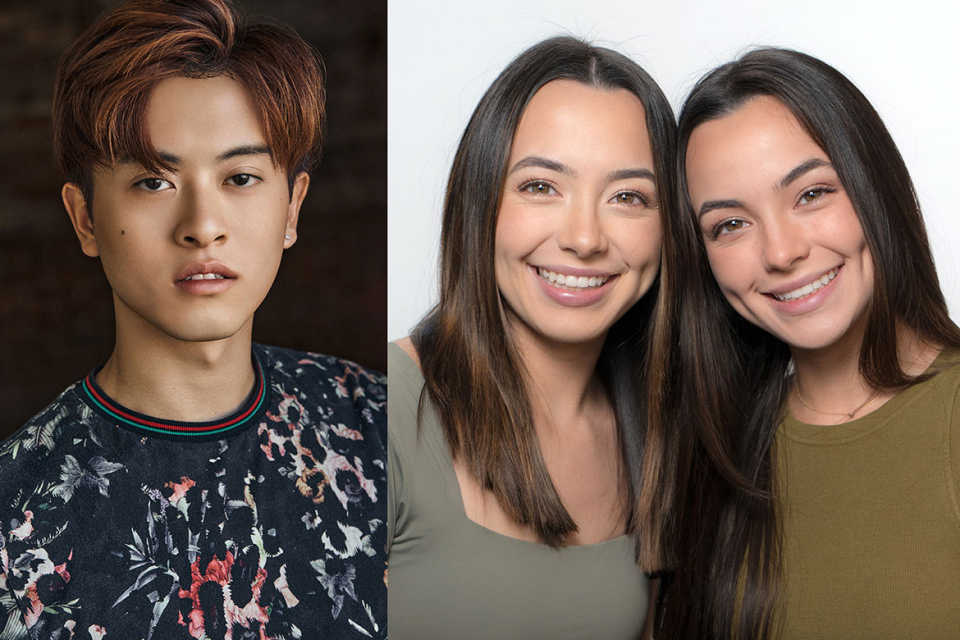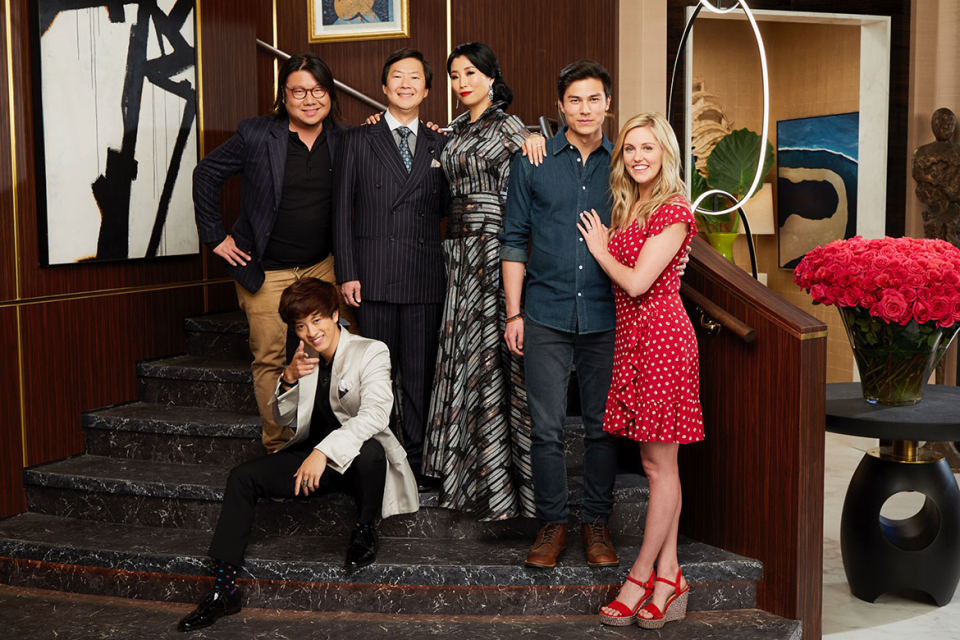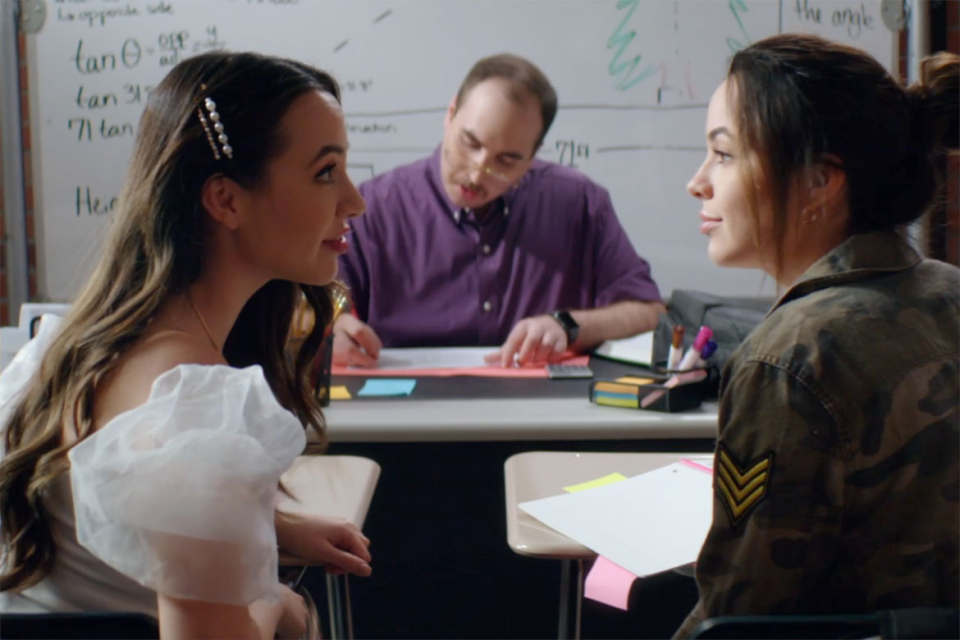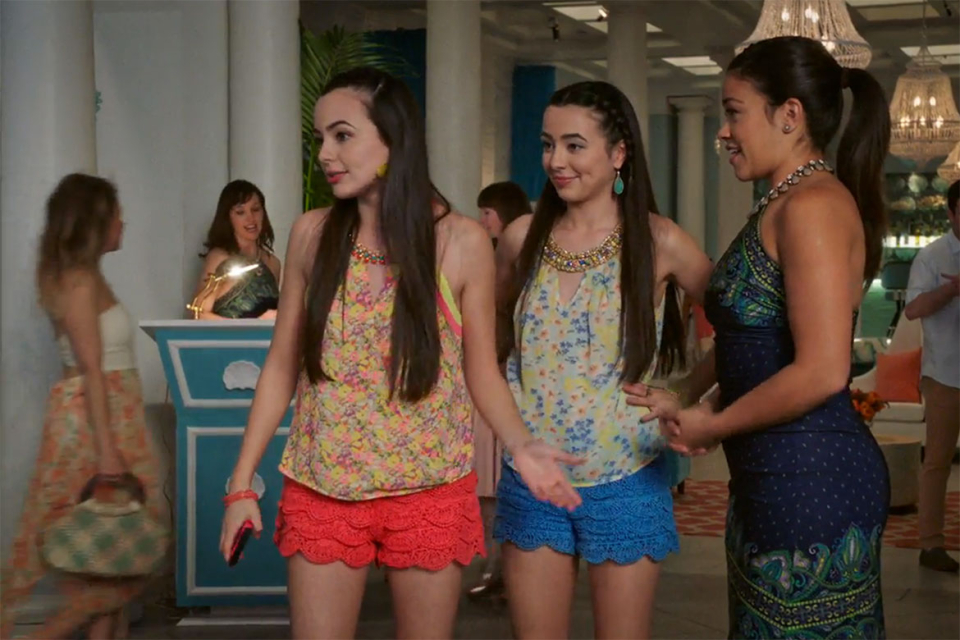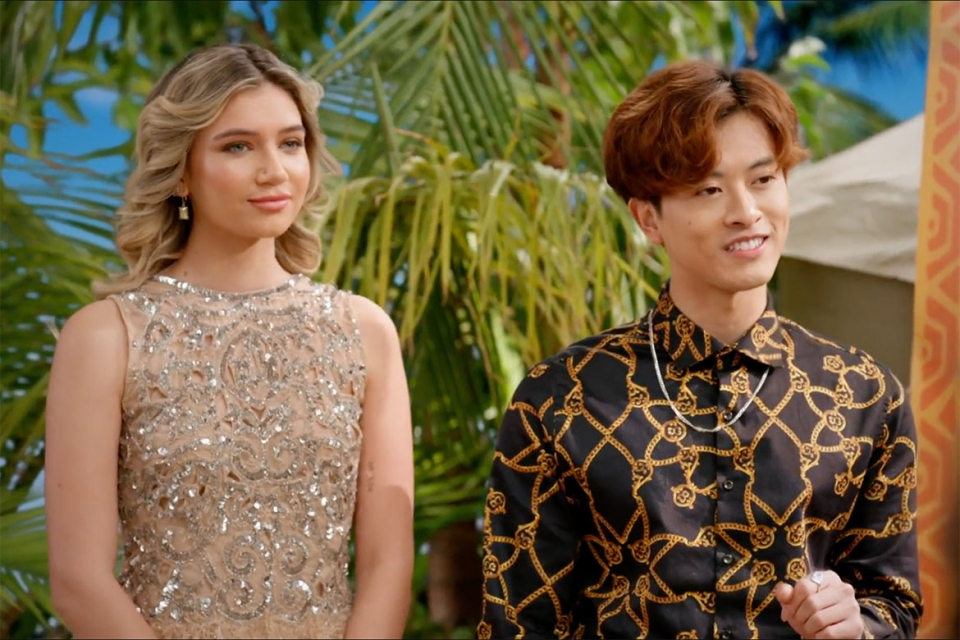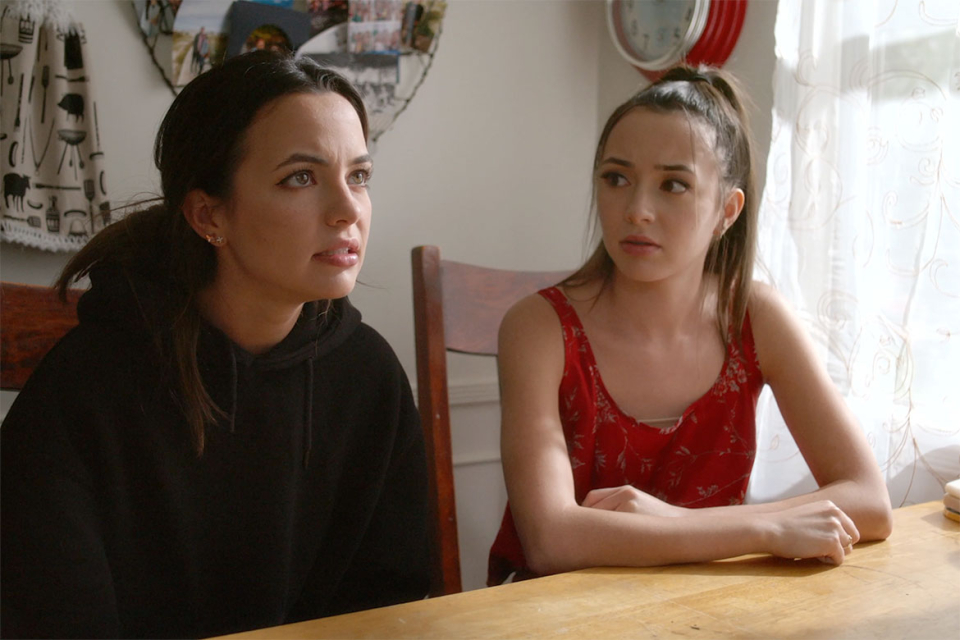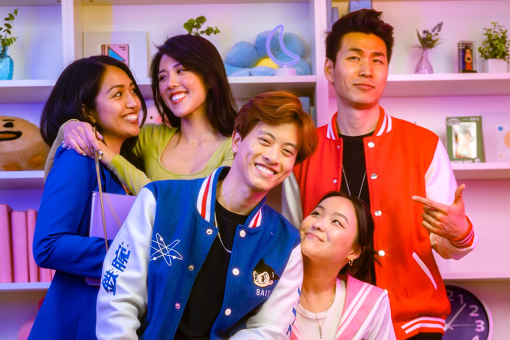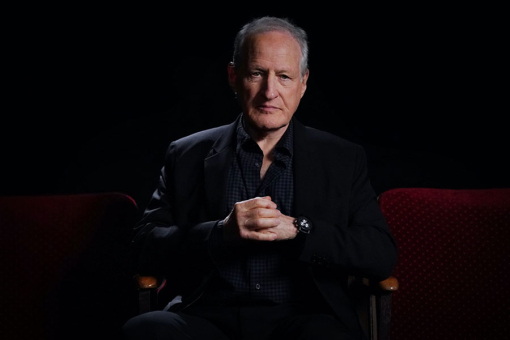This summer, VidCon — the buzzy gathering for online creators, influencers and the fans who love them — returned to the Anaheim Convention Center after a two-year Covid hiatus. One conspicuous change since VidCon 2019: TikTok had supplanted YouTube as the event's title sponsor. The shift was confirmation of the ubiquitous short-form content platform's rise in popularity during the pandemic years and its role as a key driver of the burgeoning creator economy, which is estimated to be in the double-digit billions — and growing. But no dirges for YouTube, which according to estimates will exceed $28 billion in revenue this year compared to a projected — and hardly paltry — $12 billion for TikTok.
For decades, the conventional path for aspiring actors, singers and others with showbiz ambitions was to move to L.A. and wait tables while pursuing their Hollywood dreams. That still happens, of course, but with real money to be made through advertising revenue, brand partnerships, merch sales and more — not to mention enormous potential audiences — digital platforms have become an intriguing alternative for creative types with an enterprising bent.
Among the dozens of online stars selected as "featured creators" at this year's VidCon were three who have built flourishing careers straddling traditional media and digital media: Alan Chikin Chow and identical twin sisters Vanessa and Veronica Merrell.
Chow, who started acting in his native Dallas, moved to Los Angeles to attend USC, and promptly began scoring the occasional TV guest spot, including an episode of the long-running ABC medical drama Grey's Anatomy. Seeking wider exposure for his work while continuing to audition, he plunged into the digital world just a few years ago and now, between TikTok and YouTube, has amassed more than 25 million followers for his clever — and shrewdly curated — short comedy videos. Several TV projects are also in the works.
The Merrells began performing as Kansas City middle-schoolers. In 2009, they started a YouTube channel, posted a video called "What It's Like to Be a Twin" and largely forgot about it. Two years later, they discovered that the video had logged 10,000 views and their channel had attracted 2,000 subscribers. The response spurred them to devote themselves to the digital space while, after relocating to L.A., continuing to seek — and score — TV work, including recurring appearances on the CW hit Jane the Virgin. They now have more than six million subscribers who can't wait for Tuesdays, when the twins post fresh content like clockwork. Their oeuvre encompasses a little of everything: playful videos chronicling their day-to-day lives, silly games and challenges, original pop songs and ambitious scripted comedy series that would be at home on Nickelodeon or Disney Channel.
At VidCon, emmy magazine's Juan Morales spoke with Chow and the Merrells about balancing digital and traditional media, building a business and the importance of strategy and a strong work ethic.
The interviews have been edited for length and clarity.
ALAN CHIKIN CHOW
You're a popular online creator, and you've had acting roles on network TV shows. How did you get here?
Alan Chikin Chow: I started acting when I was growing up in Dallas, Texas. There's a lot of child actors from there, like Selena Gomez and Demi Lovato. I started when I was 16 or 17.
I went on some Disney Channel shows like I Didn't Do It and a few others. That was fun. And then when I got to college at USC, a friend of mine introduced me to a club for social media content creators called Reach. I used to love Vine, and I always kicked myself for not going on Vine when it was alive. I saw how people like Logan Paul went from doing Vine to having his own movies. So, when TikTok came out, I thought, "I'm going to go all in on this." And it has led to some great opportunities.
You also post videos on YouTube.
Yeah, I have some long-form videos that are YouTube only, but the shorts are cross-posted to every platform. Nowadays, I do a strategy where some videos are intended to perform really well in shorts, and some are intended to perform well on Instagram because they all have different algorithms. There's always a strategy behind what I post.
Did you figure that out on your own, or do you have advisors to maximize your exposure and opportunities?
I have an amazing team of a lot of different people, and I take the advice that all of them give me and then I make my own decisions around how to use my time and how to intentionally use each one of my videos to grow on each platform.
Are you still auditioning for acting roles on television?
Yes, I'm still actively auditioning. I think that's what makes me different and how I'm going to stand out from the pack.
Tell me about that. How do you evaluate yourself and your goals compared to other creators?
I moderated a TikTok panel here, and I asked the participants what their ultimate aspirations are, and pretty much everyone said, "I want to be an actor, I want to have a TV show," things like that. I'm so fortunate that I've been trained in acting. I was on TV shows and movies before I started social media. So, when it comes to those opportunities, I'm an easier "yes" because it's not throwing some kid from their bedroom onto a film set, which is massively different. Instead, it's like, "Oh, this guy has experience working on professional productions."
As an example, you were on Grey's Anatomy years before you were online.
Yeah, I got roles like that purely on my acting ability. The biggest project that sadly didn't see the light of day was called The Emperor of Malibu. It was like a sitcom version of Crazy Rich Asians. Ken Jeong played my dad in it. Kevin Kwan, who wrote Crazy Rich Asians, created it. It was a pilot for CBS that unfortunately didn't go [to series], but I'm working with Kevin and [cowriter] David [Sangalli] on another project.
What did you study at USC?
I studied screenwriting and business, which is the perfect intersection for social media. I didn't study acting, because I had studied acting growing up, and I didn't feel the need to. I wanted different skills. It's really paid off.
You only started in 2019, and you already have more than 25 million followers across your platforms.
Yeah, it's unbelievable.
How has that online exposure affected your TV and film career?
It's helped in getting roles. I did a guest star on [the ABC comedy] Home Economics where I played myself, Alan Chikin Chow, in a fake show within that show called Influencer Lagoon. So, there are cases where my following has helped create acting opportunities.
It feels like your more recent success was driven by a combination of factors: your talent and ambition, but also the emergence of a tech platform suited for your skills.
Yes, the timing was great. And not only of TikTok but the fact that other platforms started to adopt short-form content. I'm lucky because that allowed me to do what I do best on every platform.
It seems like a virtuous cycle: When you're cast on a show like Home Economics, the producers and network know you have an enormous online following. So, if you promote your appearance on your social platforms, it will drive people to watch the show.
Exactly. My fans were super excited to support and watch, and I did a live watch party with them. It was the best experience.
What are your ambitions in the years ahead?
I want to have successful ongoing projects in all different verticals of entertainment. So, digital of course. I never want to give up that aspect because I think it's the backbone of what I do. But I also would love to have a film in development, a TV show coming out and a scripted podcast coming out. That would be the ultimate place to be in the next few years. Like Lilly Singh. I also look up to Anna Akana. She's a YouTuber who's on a million TV shows and also creates her own shows.
Some online creators may make a video that goes viral, but if they don't keep at it, people get bored and move on to other things. I get the sense that, while talent is obviously important, a creator needs a strong work ethic to have longevity.
Yes, consistency is key. I heard Bowen Yang and Maya Rudolph talk about SNL, and they said it's like a chamber, and you work, like, six-and-a-half days a week. You create and you create, and you get a response, and you create. Being a content creator is kind of like that but on your own terms. It's no SNL, but the pace of life is create, go, create, go, create, ideate, create, ideate.
On the business side, you earn revenue from the advertising that appears on your videos, but you've also provided content for brands like McDonald's, Old Spice and HBO Max.
Yes. For HBO Max, I was promoting an anime project. In the video, I'm at the eye doctor getting a vision test, and I can't see [the chart]. Then they put up a poster of the anime, and I say, "Oh, that's My Hero Academia," and I call out all the different characters. It's great working with brands that way, because it fits naturally with the content. The best thing to hear is that a viewer didn't know it was a brand deal. Because if it's an ad, then people will tend to skip it. But when it feels like a skit, that's the best.
In those situations, do brands bring you in to brainstorm concepts?
It depends on the brand. Some of them have a specific plan, but others say, "Hey, here are the points we need you to hit. Can you come up with an idea?" I always try to come up with something that already exists on my page so it can do well for them.
So, again, you've got to be a creative person and a businessperson.
Yeah, that's why I'm so grateful that I studied business and screenwriting, because it's a lot of business. Ironically, my videos can be very silly, but there's a lot of business behind them.
Do you see television and online content as separate entities, or are they merging?
I think they're different types of storytelling. Online videos are more lighthearted. They're more entertainment. Whereas I feel like what lives on film and TV nowadays is a true emotional arc of a character. There's often a big change, and it gets emotional sometimes. I think super-deep storytelling still belongs on film and television, whereas with online, it's more of a light watch.
Online content has proven to be an incubator for film and television opportunities, and there are a lot of Hollywood agents and managers looking for new talent at a place like VidCon. But there are also tons of fans.
Yeah, it's incredible. This is my first VidCon, and it's been really, really cool to see everyone together. It reminds me of how massive the industry is.
VANESSA & VERONICA MERRELL
You've had roles on network television shows, and you have more than six million followers on YouTube. How did your career evolve to where it is now?
Vanessa Merrell: We moved to Los Angeles to pursue acting and music and all of that. But you can't book a job with no experience, and you can't gain experience without having had experience.
So, we thought, "We should just make skits and post covers of us singing on YouTube." That way, we'd have a platform to show to casting directors and people in the industry. Like, "Hey, look what we can do. We can act. Here's proof that we can do it." And it ended up turning into something way more than that.
It's funny because back then, we were like, "We want to have our own show, we want to star in movies." But now that YouTube is our main source of income and something we love doing, that's become our focus.
At the same time, by gaining a following on YouTube, we have gotten cool opportunities in movies and TV. From when we first moved out here to where we are now, I would have never imagined that it would have happened that way.
Your content seems to be divided into different genres. You have YouTube videos that are mainly you as yourselves. Maybe a heightened version of yourselves, but you are who you are. And then there are scripted series like Prom Knight and Breaking Into College, which have the feel of shows on Nickelodeon or Disney Channel. And there was the dating show Twin My Heart, which showed your hosting skills. You could go in a lot of directions based on that portfolio of skills. What are your ambitions?
Veronica Merrell: I think the beauty of YouTube is that we can do all those things. We do have a passion for hosting. We do have a passion for acting. We do have a passion for live reality. We still love the idea of expanding ourselves and learning new things because we don't want to just stick to one niche. We want to be able to do many things.
Vanessa: When we first started making videos — and even going into the industry in general — the rule was you had to pick something and stick with it. Pick acting only, or music only — you can't do both. Or at least, that's what they told us back then.
But we don't want to do that. We want to do skits. We want to do songs. We want to do fun challenges. Because we started our channel that way, that has been the Merrell Twins brand in general.
You earn ad revenue from YouTube, and you have branded merchandise. And in some of your videos you're using products like makeup. Are those revenue streams, too?
Vanessa: We get brand deals for makeup that we promote in videos. And then there are times when we will just talk about a product we love.
Brand deals have always been a part of YouTube and another stream of revenue. A lot of influencers make most of their money off merch because YouTube went through what we call the "Adpocalypse," when a lot of channels that are not family friendly were demonetized. Our channel was not affected at all.
Veronica: Being family friendly is a priority for us because we're family friendly people in everyday life. You're not going to see us cursing or dropping F-bombs everywhere.
Vanessa: Our main source of revenue is our YouTube channel, but at the end of the day, it all comes down to how many people are watching our videos. Even the number of subscribers doesn't have much of an impact. It's more about how many people are watching. That's the most important thing.
How has that translated to opportunities in traditional media?
Vanessa: A lot of times, traditional media is wary of working with social media influencers, and there's a big list of reasons why that would be. For influencers like us, who have a passion for acting, a passion for music, a passion to do movies and TV shows — I think people are a bit hesitant for some reason. There's a weird line between online media and traditional media. We've crossed over already, but it's almost like that's not enough proof that we could carry our own show.
Veronica: Also, online, we create our own content and we're in control of our content. So when we present an idea, I wonder sometimes if it's hard to give creative control to YouTubers. But we know our audience. We know what people want to watch. We see comments every single day. I think eventually, fingers crossed, traditional and digital media will be able to work together in a way where they can create content where everyone can have influence and input.
Some online influencers get popular for a while but don't sustain longevity because they don't have the discipline to keep making new content, so people move on to other things. In your case, I read a story in Variety that said you don't miss a Tuesday.
Veronica: Nope, we don't. We haven't missed a Tuesday in 10 years. We see our channel as a network where we're posting weekly. And every single Tuesday our audience knows there will be something new. To build a channel, consistency is the most important thing — having that discipline and motivation.
It helps that we have each other, and we have a team. Our dad helps edit and film our videos, and we sometimes send it to another editor. I feel bad for people who are doing it themselves, because they have to do everything: light the scene, film it, edit it, post it and promote it.
Vanessa: If we were to miss a Tuesday, I don't even know what would happen to our channel because of the algorithm.
Veronica: We could do a whole interview about that. Our algorithm recognizes that we post videos on a Tuesday. And if it's not a certain length, it'll show in the analytics that viewers aren't watching as long. Even if the viewing time was shorter because the video itself was shorter.
TikToks are short, but most of your YouTube videos are about 15 minutes.
Veronica: Right, so if we post an eight-minute video, our algorithm will tell us that it's not performing as well because it's so used to the audience-retention rate being 15 minutes.
Fortunately, our audience loves what the Merrell Twins do, which is so important. I think that gets lost for a lot of creators and for people in general in the industry. They focus on an audience that they want. But really, they need to focus on and cater to the audience they already have. That's something we've learned, and we've always stuck to.
Vanessa: I think that's why we've had steady growth. I'm so thankful for how our career in YouTube and social media has gone, where we've had this slow, consistent incline rather than a viral video that hit millions of views overnight. It's always been gradual.
We'll post a video, and then, maybe two months later, we'll look back and it has five, six million views. And we're like, "Whoa, how did that happen?"



